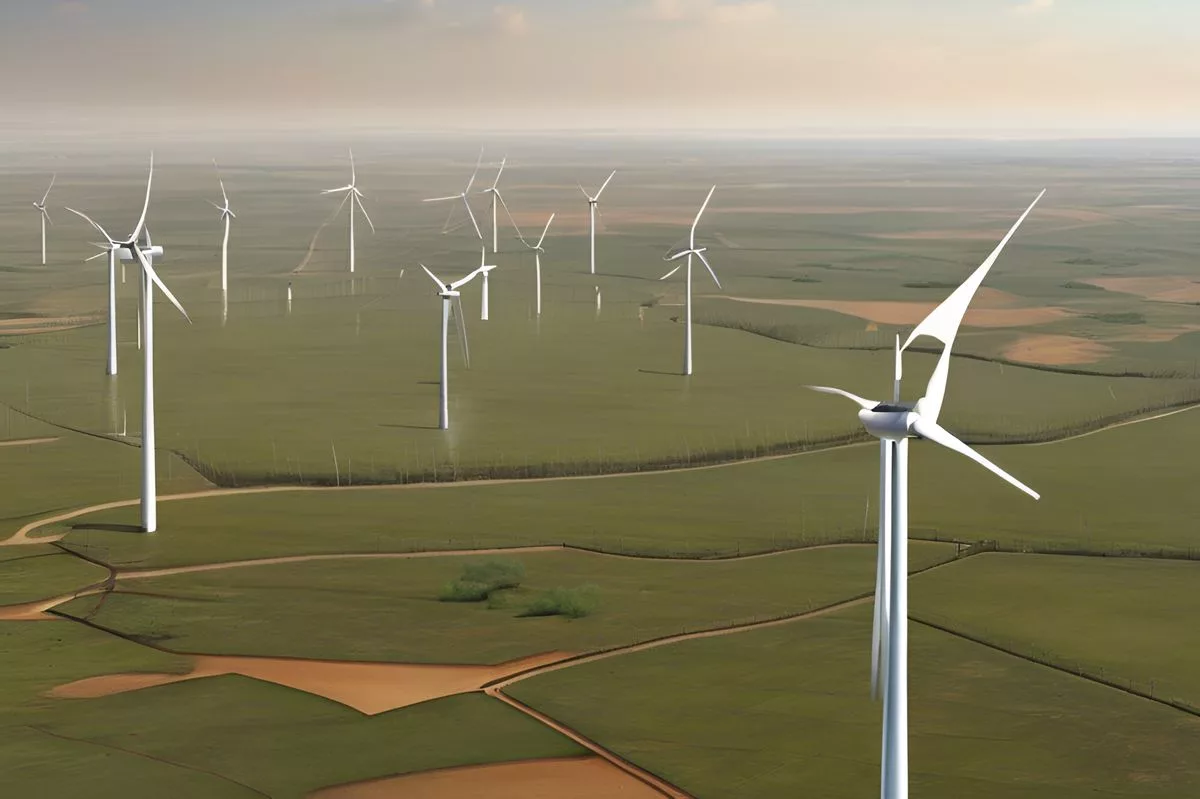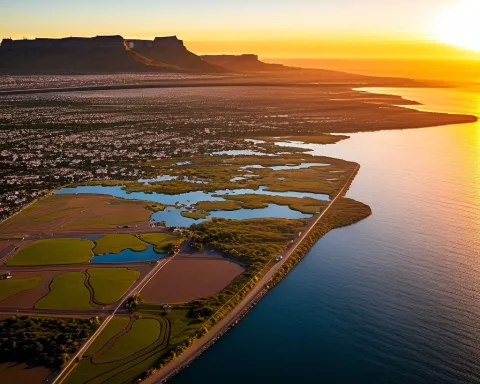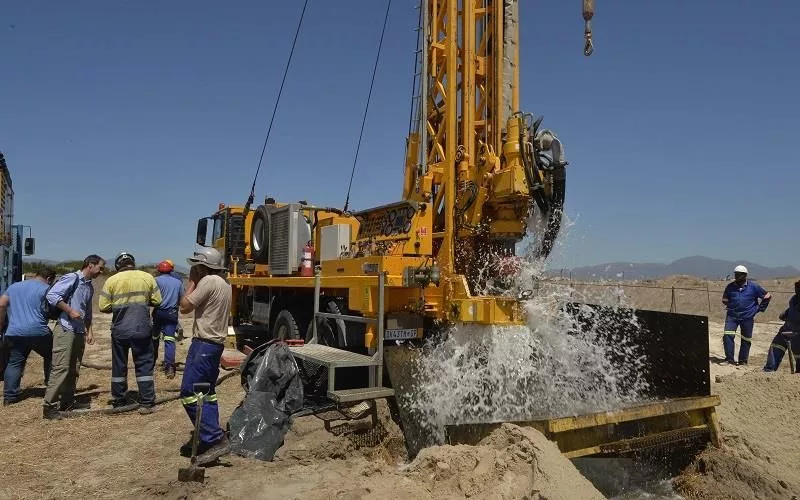South Africa is making strides to combat the climate crisis by implementing Sectoral Emission Targets, a Just Energy Transition Investment Plan, and establishing the Climate Change Response Fund. The country is also shifting towards renewable energy and passing comprehensive legislation to minimize greenhouse gas emissions. The Department of Forestry, Fisheries, and the Environment is prioritizing environmental conservation, including wildlife protection, marine resource management, and waste management initiatives. Overall, South Africa is working towards a sustainable future through innovative climate action and ethical administration.
The Climate Crisis: A Call to Action
South Africa is taking bold steps to tackle the escalating climate emergency, including the implementation of Sectoral Emission Targets and a Just Energy Transition Investment Plan. The country is also pivoting to renewable energy and establishing the Climate Change Response Fund to finance adaptation strategies and compensate for losses related to climate change. South Africa’s commitment to reducing greenhouse gas emissions is evident in its recent adoption of the Climate Change Bill, providing a comprehensive strategy to tackle climate change.
In the dynamic democracy of South Africa, the intricate fusion of economic, political, and scientific considerations is unmistakably apparent. The annual budget speech, delivered by the esteemed Minister of Forestry, Fisheries, and the Environment, Dr. Dion George, underscores this relationship. As the leader of the 7th administration, he is charged with the intricate task of satisfying the immediate demands of the South African populace while ensuring the safeguarding of resources to serve future generations. This complex responsibility, as dictated by the Constitution’s Bill of Rights, Section 24, is no mean feat.
The Climate Crisis: A Call to Action
The escalating climate emergency poses a pressing and formidable challenge. Africa is witnessing a sharp increase in temperature at a rate 1.5 times greater than the global average, triggering extreme weather conditions. South Africa’s commitment to curbing these climatic threats is evident in its recent adoption of the Climate Change Bill. This Bill provides a comprehensive strategy to tackle climate change and minimize greenhouse gas emissions, a prime contributor to global warming.
Alongside legislation, South Africa is taking bold steps including the implementation of Sectoral Emission Targets and a Just Energy Transition Investment Plan. These initiatives aim to drastically cut down greenhouse emissions, with a particular focus on major corporations. The establishment of the Climate Change Response Fund, set to be finalized by the end of the financial year, is another key measure. This fund will be instrumental in financing adaptation strategies and compensating for losses and damage related to climate change.
The country’s climate response also involves a decisive pivot from carbon-reliant energy sources to renewable energy. Blessed with vast solar, wind, and mineral resources, South Africa has the potential to create numerous jobs in the renewable energy sector. Emphasis is also being placed on green hydrogen, green steel, and electric vehicles, marking a significant economic transition towards greener industries.
Stepping Up Environmental Conservation
The Department of Forestry, Fisheries, and the Environment has been proactively engaged in environmental conservation efforts. After committing to finalize energy generation, transmission, and distribution infrastructure applications within 57 days of receiving the final report, more than 80 percent of these applications were processed on time. This impressive efficiency has enabled a potential generation of an exceptional 51,358 megawatts of energy.
The Department also prioritizes wildlife protection, specifically rhino conservation. In reaction to a spike in rhino poaching incidents in 2023, a rhino dehorning program was launched in April 2024, which led to a decrease in such incidents. To further safeguard this emblematic species, the Department is working on the Biodiversity Management Plan for black and white rhinoceroses. Collaborating closely with law enforcement agencies, efforts are being intensified to ensure successful prosecution of poachers.
The Department’s diligence extends to protecting marine resources too. The Working for Fisheries Programme has facilitated eight major projects, creating employment opportunities and introducing anti-poaching measures. The Department is enhancing its support to small-scale fisheries cooperatives in the four coastal provinces, thereby promoting connectivity to the Ocean economy and fostering entrepreneurship.
Leveraging Legislative Action for Environmental Preservation
Legislative action plays a significant part in the Department’s mandate. The Aquaculture Development Bill, awaiting Parliament’s approval, is one such legislative effort. The Department has also finalized and issued decisions on 320 Environmental Impact Assessment applications within the prescribed timeframe, demonstrating an efficient and responsive governance framework. Furthermore, the Department’s Directorate of Appeals and Legal Review concluded 16 ESKOM Minimum Emission Standards appeal decisions, a substantial achievement for the 2023/2024 financial year.
Waste management and recycling initiatives also fall under the Department’s purview. Last year saw the processing of 50,192 tons of waste tires, marking a 38% increase from the previous year. Local governments are receiving support to enhance waste diversion from landfill sites through reusing, recycling, and recovery efforts, focusing on packaging waste such as paper, plastic, and glass. This initiative is further bolstered by providing technical assistance to municipalities for waste management fleet purchases and improving waste collection services.
A Vision for a Sustainable Future
In a nutshell, the Department of Forestry, Fisheries, and the Environment is effectively navigating South Africa towards a future grounded in sustainable resource management, innovative climate action, and tangible environmental preservation. Despite the sizeable challenges, the Department’s proactive stance and dedication to its mandate are promising indicators of progress towards the sustainable development goals. The pursuit of a sustainable, climate-resilient South Africa is ongoing, steered by the principles of transparent governance and ethical administration.
What steps is South Africa taking to combat the climate crisis?
South Africa is implementing Sectoral Emission Targets, a Just Energy Transition Investment Plan, and establishing the Climate Change Response Fund, in addition to passing comprehensive legislation to minimize greenhouse gas emissions. The country is also pivoting towards renewable energy and prioritizing environmental conservation.
What is the Climate Change Bill and how does it aim to tackle climate change in South Africa?
The Climate Change Bill provides a comprehensive strategy to tackle climate change and minimize greenhouse gas emissions, a prime contributor to global warming. It is an important step towards a sustainable future by establishing regulations and targets for reducing emissions and adapting to the impacts of climate change.
How is South Africa working towards a sustainable future through environmental conservation?
The Department of Forestry, Fisheries, and the Environment is prioritizing environmental conservation, including wildlife protection, marine resource management, and waste management initiatives. Efforts are being made to protect emblematic species such as rhinos and marine resources. Waste management and recycling initiatives are also falling under the department’s purview.
What legislative action is being taken to preserve the environment in South Africa?
The Aquaculture Development Bill and Environmental Impact Assessment applications are examples of legislative efforts by the Department of Forestry, Fisheries, and the Environment. Waste management and recycling initiatives are also being supported through technical assistance to municipalities and improving waste collection services.
What is South Africa’s vision for a sustainable future?
South Africa is effectively navigating towards a future grounded in sustainable resource management, innovative climate action, and tangible environmental preservation. The pursuit of a sustainable, climate-resilient South Africa is ongoing, steered by the principles of transparent governance and ethical administration.
What economic opportunities are arising from South Africa’s shift towards renewable energy?
South Africa has the potential to create numerous jobs in the renewable energy sector, including green hydrogen, green steel, and electric vehicles. This marks a significant economic transition towards greener industries.












